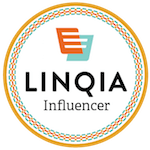United Plant Savers: Conference
United Plant Savers: Conference
I attended this conference this past weekend and was not disappointed. It was a wealth of information. Here are a few of the highlights:
The Bee Issue: Pollinator Decline
Susan Cooper from Finding Our Way Now first alerted me to the issue surrounding bees. They are in trouble from multiple avenues, everything from pesticides to fewer bee keepers to disease to climate change to loss of habitat. This conference raised my awareness even further and provided some ideas for how we can participate in addressing the issue. Why do we care? Because we need them to pollinate our plants. Plants are not just flowers, they are food. Yes. This effects our food supply.
There are already places in this world where they are pollinating by hand. That’s right. There are no pollinators due to heavy use of pesticide so all pollination is done by hand by humans. Seriously… I had to lift my jaw up from the floor I was so shocked.
How can we help the bees survive? We can plant those species that bloom early in the Spring and late into the Fall. We need to extend the blooming season for as long as possible. Even those who live in apartments or condos can participate by putting blooming potted plants on their patios.
The Herbalist Medicine Cabinet
This conference also reinforced what I have always known and believed. You do not need to know and use a multitude of different herbs. You just need to know and keep on hand those you would use most often and a few that might be used in rare instances. Not every herb works for everyone. I have stated that in previous posts. It is analogous to someone taking Prozac and it works, and someone taking Prozac and they want to off themselves or it doesn’t do anything at all. They key is in finding those herbs that work for you and stocking those in your herbal medicine cabinet.
One other point I would like to make is that being familiar with what grows wild and local for you is also important. What happens if you injure yourself and you are away from your home, like camping for instance? If you know those ‘weeds’ that grow wild in your area, you are more than likely going to be able to treat your injury with those ‘weeds’, at least temporarily.
If You Listen, They Will Teach You
Using herbs is not a foreign concept. They have been used throughout history. What did we do before modern medicine? We relied on the plants to keep us well and nourish us. The best herbalists we have will tell you that plants and humans have a natural symbiotic relationship. They breathe out and we breathe in. We breathe out and they breathe in.
“If you listen, they will teach you.” Yes. The plants will teach you.
How many of you sit in your flower gardens when you want to relax? Perhaps the bright colors of the flowers lift your spirits and put a smile on your face after a stressful day. Or maybe it’s the wonderful scent of those beautiful flowers that calms you. Think about it…
Rosemary Gladstar
Yes. My favorite herbalist was at the conference. I have a poster signed by her to remember the occasion.
You may be wondering why I am not sharing photos in this post. Believe it or not it did not seem the appropriate time or place to take photos. We attendees were too busy absorbing the information shared.
Were you aware of the pollinator issue? Do you keep certain herbs on hand for your personal use?
Filed in: Healthy Gardening



I have been reading about the bee issues on and off for years. Yet, there still doesn't seem to be enough information about how to help. So you've given me some pointers in this post….I'd never really thought about planting to attract them longer! As to the herbs…I really love your quote on the symbiotic relationship. I never fully understood why I loved being in my garden so much…hours at a time! Maybe they WERE speaking to me:)
Good post Cheryl. Yes I did know about the pollination issues and do try to plant flowers that bees love & that are drought resistant. lavender is a good one. Sounds like a great conference too.
We got lucky when we moved into our house. The previous owners landscaped to have flowers throughout the growing season. We have built on that base to have plenty of food for the bees.
Sounds like fun. Glad you were able to check out the conference.
Another disturbing fact about the bees is they are often collected and carted from various locations as fruit trees get ready to bloom. It's very stressful on the bees.
Now I feel better about my giving up on weeding. It used to be a relaxing activity for me. Now it's just a bother. Sounds like because we plant annual color plants at spring and fall that some will help keep the bees busy. Thanks Cheryl.
I love the enthusiasm you put into the subject of herbs, Cheryl. I've already learned much from you, including the fact that humans are hand pollinating plants! I've also noticed a dramatic reduction in the number of monarch butterflies we're getting up here. We used to have tons of them on our lilac bush when it blooms. This year … not a one.
The herbs that most impact my life (other than the delicious ones I grow on my porch) are echinacea (which really does work for me in clearing up sore throats, colds, etc.) and cone flowers (I love the floral smell of the tea infused with cone flower petals, and it really is good for the sole.)
Here's hoping that collectively, we can turn things around and save the planet.
Interesting about the pollinator decline. Had no idea that was an issue. Maybe I need to buy some plants for my balcony:-)